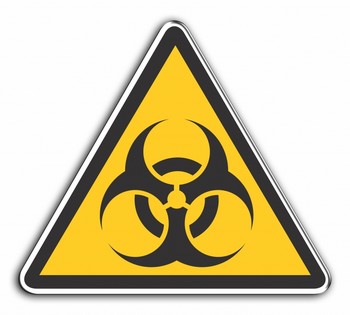Too Legit?
 Wednesday, June 8, 2011 at 4:38PM |
Wednesday, June 8, 2011 at 4:38PM |  Dave Masterson |
Dave Masterson |  Your reputation is always visible.We are in a new age of customer service. Things are changing. I may not go so far as to say we're at a "zero tolerance" level, but businesses now have to live to a higher standard.
Your reputation is always visible.We are in a new age of customer service. Things are changing. I may not go so far as to say we're at a "zero tolerance" level, but businesses now have to live to a higher standard.
The online standard.
Yelp is a smartphone app/website review tool for restaurants. Edmunds.com? Same thing for cars. Rottentomatoes.com is this for movies. Consumers are armed with a wide array of options with which they can review, complement or bash your business. Just about everyone has a Facebook account, many have LinkedIn and a growing number use Twitter. Some have set up partnering between the three social tools so one posted message goes to multiple social media sites. And once they do any of the above, it sticks, it gains traction and it gets noticed. It becomes searchable on that system and also on the web with Google, Bing and Yahoo. Gone are the days of a person leaving disappointed and silent about a poor experience. People can access their apps and the web via smartphones to issue a product or service review instantly! Uh oh...
If your service isn't A+, be prepared to hear it. If your products aren't high quality, fasten your seatbelts. The costs to your business in "acquiring"a dissapointed customer just went up. You know the truth, so many people do their homework with the Internet before making a purchase. Imagine someone finds your business online due to your shiny and polished website, your SEO efforts and your pay-per-click expenditures. Then they see a Better Business Bureau posting with a customer complaint or rant. How likely is it that they'll use your business with that information staring them in the face? Studies used to claim that one bad customer would tell 11 or so other people about your businesses' ineptitude. That's changed. Today, many more than just a dozen word of mouthers will discover an online complaint about your service. And think of this - because its online, the issue in question will remain long after the bad taste leaves the customer's tongue. Almost like it happened yesterday, everyday, for years to come. Franchisees need to realize this and go double-scoop on all customer service issues effective immediately. When we deal with customer complaints here at our office on behalf of hundreds of franchisees wearing our brand names, we see both sides. The franchisee has a business to run and need to be profitable. The customer expects service, quality and a fair price. Thankfully we don't get too many that aren't handled at the store/franchisee level. Those that do make it to our office are usually disagreements where both parties have already taken a shot at a resolution and they look for us to be the deciding voice. Conflicts are best handled where they started however, between the two parties directly involved, each with a stake in the outcome.
If you can't avoid a service-related disagreement, then what? Before we look at the options and the possible outcomes, some questions to ponder. How much do you pay to get a customer, to begin a business relationship? How much do you pay to get just a sales lead? What does your advertising and marketing cost? Knowing these answers and considering them prior to resolving issues is important. Here's why. If you pay $50, $75, $100 to get a customer, do you choose to argue about a job that's value is $35? It sounds crazy, but I've seen people do this! They can justify bickering with a customer over a logo charge, which was $35 (and cost the store $15-20!). The customer, after this experience, is not only less likely to come back, he or she is very likely to spread the word about their dealings to others. And trust me, their assessment of the incident will be 101% one-sided. How do you stand to fare in this situation? Having paid more to earn the customer than the issue at hand is worth, it is CLEARLY beneficial to please the customer, bow on the charges you'll incur, and most importantly, keep and satisfy the customer. You have options. You can do nothing and allow the customer to rail on your business online. You can compromise and come to an "in the middle" solution. This may work. There is some risk that charging the customer more money for the resolution could prompt he or she to post negative comments anyway, soured on his or her experience. In general, customers will wait longer for a suitable remedy and pay you with their time, but they are less likely to pay you more money for a perceived "mistake." Here's where excellent customer service practices should surface. Number one is being accountable and owning the issue. You may not (in your mind) be wrong, but swallowing hard and making things right is imperative. Recommit to a new deadline. Offer delivery, a discount on the next purchase, or something free that will sweeten the customer's experience as you mend a torn relationship. Raised voices and bravado will not help, nor will washing your hands of the issue and sending the customer out among the masses dissatisfied. You exist because customers choose to give you their choice, their loyalty and their money. Don't let this "business basic" elude your consciousness!
Not everything on the Internet is true. Another "Uh-oh" moment. What if you're wrongly represented online as being unfair, uncaring and poor in service standards? If every consumer has a button that can launch an online barrage at your business post-sale, what to do? Prepare beforehand for this possibility by bolstering your online presence with positive, satisfied customer reviews. Your best clients keep coming back for a reason - do you know the reason? Let them review and represent how you've helped them on your Facebook business site, post as many testimonials on your websiteas you can, link to their online assets that may positively mention your contributon to their success. Have customers give you LinkedIn recommendations, the new digital "thank you" card. In doing this, you're preloading the online scene with good, sincere and truthful information that speaks well of your efforts. If a maligned review appears, it will now reside among many good experiences shared by your advocates. No company has 100% satisfaction across the board, as a result it is not uncommon to read of instances where a customer would not be contented. Look to keep this to a minimum, especially online. Do not be tempted to arguing online and offering rebuttle after rebuttle for the world to see. These discussions are best held in person and offline. Remember that it's easier for someone to be courageous in their attitude and demands online, a bit tougher on the phone (where a voice gives clues as to intents) and still more difficult in person, body language being what it is. Look to always employ the method that can best solve the problem.
The online spectrum allows for so many new ways for a business to promote its high points. Customer reviews are a big part of succeeding now that everyone's voice can be heard. Do your very best to build a culture in your business that is customer service centric and online aware. Everyone knows of amazing stories of how businesses redouble their efforts to keep and enamour their clients. You have to adopt that mentality towards the customers in your business. Your team has to become better than just "good" at surpassing customer expectations through their attitudes and their deeds. The "great" make it to the top of the list when it comes to online reputation management. To be great, you have to be uncommonly prepared to give when you may not feel like it, sometimes admit fault when you're not wrong, and send your customers away with an experience so dazzling they'll stop and tell others about you. Years ago it would be enough just to be good at this. It was sufficient to be simply legitimate. Now the game has changed. It's time to be "too legit" in your customer service efforts. Get started.



